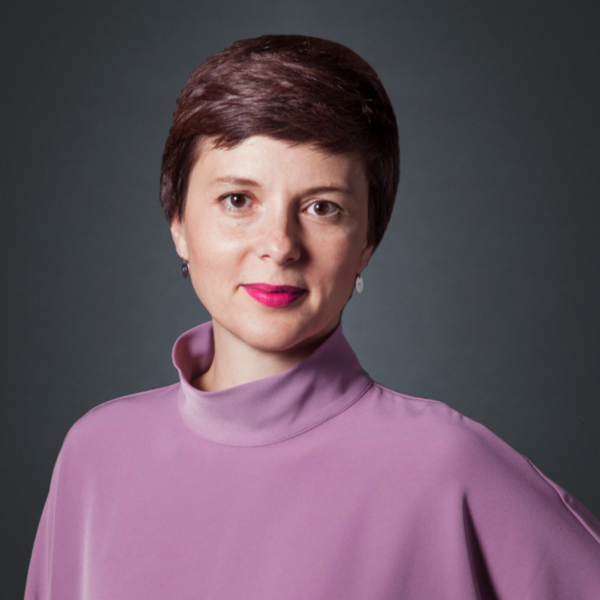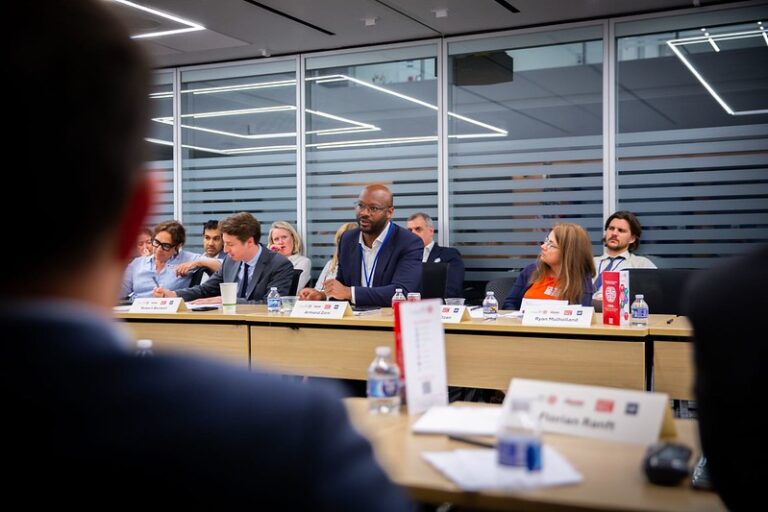The event was titled “After the storm”. And a storm it was, especially one to the polls. With a turnout of 74%, more Polish voters went to the ballot box than ever before. DPZ Board Member Katarina Niewiedzial welcomed around 60 people to the online briefing. At the beginning, she underlined the importance of the think tank’s work and said: “Das Progressive Zentrum has always been a bridge between German and Polish society.” In fact, the first-ever public event by the DPZ had been one about the Polish general election in 2007. And that one, too, asked: What’s new with Donald Tusk? “Now we’re repeating this discussion – but the circumstances are really different”, Niewiedzial stated.
DPZ Policy Fellow Maria Skóra recapitulated the results of the October 15 election and presented the latest numbers to the listeners. The PiS (Law and Justice) remained the largest party in the Polish Parliament but lost its majority with only about 35% of the vote. Which means it will most likely be unable to form a government. The three main opposition groups, Civic Coalition, Third Way and New Left, took 54% of the votes, winning enough seats to allow them to take power.
What do you make out of this election?, was the then obvious question Maria Skóra asked the panelists.
Karolina Zbytniewska, editor-in-chief and managing director of Euractiv Poland, was the first to voice her relief. She said: “What cheers me up is this feeling of calm and of unity among the people.” She had not believed the results until the very last moment. What gave her optimism for a peaceful transition of power, was current Deputy Prime Minister Jarosław Kaczyński’s comment that there would be the possibility for his party of going into opposition.
Zbytniewska then looked back and described the campaign as the most brutal, aggressive one in the history of Polish elections. The major messages of PiS had been emotional hate speech against Tusk and the narrative, that he was virtually allowing Germany and the EU to “invade” Poland.
Konrad Gołota, parliamentary candidate for the New Left, shared his impressions from the campaign trail and said: “The campaign was purely about emotions.” Parties from the opposition side had had the most sophisticated programs ever – but no one really cared about content. He described tough conditions with no limits in the violent language of the governing party. According to Gołota, one reason for opposition parties winning the Sejm was the actual mobilization in the streets with 1 Million people marching on Warsaw at one point. Gołota also praised the high voter turnout connected to this mobilization of people who had been disappointed with the PiS.
So who is the true winner of this election?
The Polish people will benefit from the result, Karolina Zbytniewska remarked. But “liberal democracy is the real winner”, she proclaimed. There had been doom and gloom all over Europe that nothing could be done about declining democracies. The results in Poland, however, provided the desperately needed glimmer of hope. At the same time, the European Union was the winner, Zbytniewska further said.
Opposition politician Konrad Gołota agreed: “This is very good news for Europe.” In a smart, balanced campaign, the opposition had focused on young people and women. As a result, voters marginalized right-wing parties in Poland and the Left also changed political discourse in the country. “It was a moral victory”, Gołota stated. Reforms are now possible, including of the public media that had been “poisoning” people in Poland for too long. With regards to the focus of a possible pro-European government with a left alliance in the coalition, he named four key points from their platform: rule of law, women’s rights, affordable housing as well as the strict separation between state and church.
The cautious optimism shared in the group was overshadowed by skepticism of what is about to come. Konrad Gołota dampened expectations. The most important step would be to fix the rule of law in Poland. But people should not expect miracles within weeks. “We need to change institutions, we need to change people. That’s a process, it’s not going to happen in a day”, he said.
Bringing back unity in Polish society gave her a pessimistic feeling, Karolina Zbytniewska shared. Looking at the United States you could see that President Joe Biden was trying to take populism and violence out of politics – with the effect of polarization rising even more.
“I’m afraid that this might also happen in Poland”, she said. Pandora’s box had been opened in 2015 and it needed to be closed again.
Lastly, the panelists engaged in discussion with the audience.
One listener asked how a new government would represent the average PiS voter in parliament and media to prevent further polarization. Konrad Gołota said, firstly, they needed to lower emotions and start talking about programs and politics. The plan should not be to reverse all policies but rather analyze them and carefully consider what needs to be done to stabilize democracy.
The audience also wanted to know about the future government’s expected approach towards the EU. Journalist Karolina Zbytniewska reminded listeners: Poland used to be a constructive actor with a steady development. Those two factors had turned the country into a power within the EU. A new government should remember and take advantage of this – because the EU on the other side would jump right into cooperation with Poland. “They really need constructive unity”, she said.
The discussion ended on a positive note. It seemed as if the storm had already passed by.
The event was held online on October 17th 2023.








